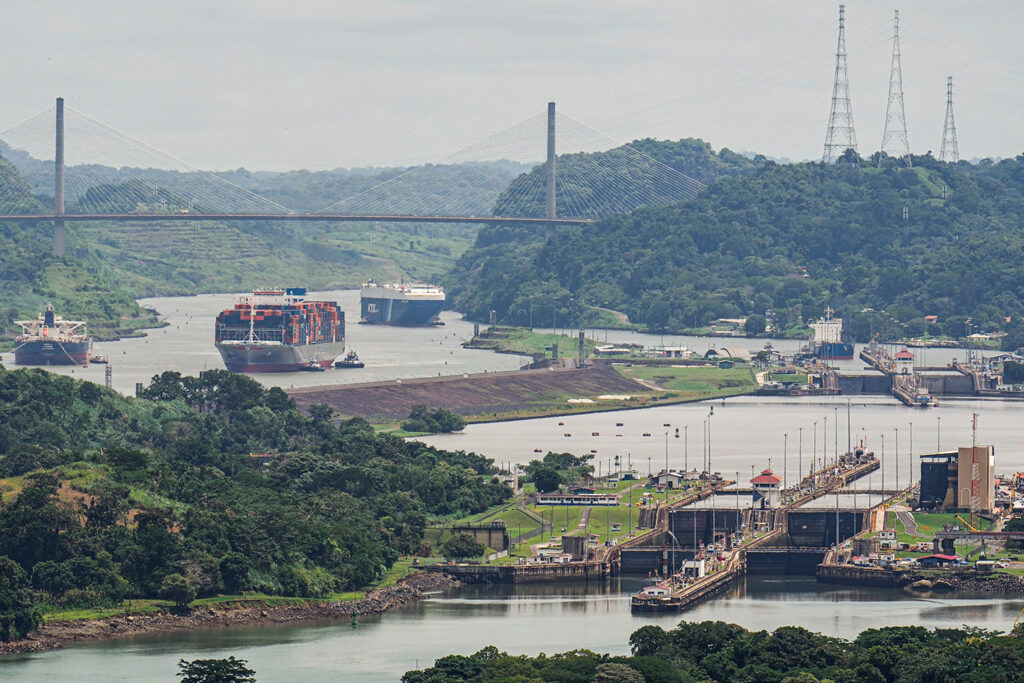The United States and China clashed over the Panama Canal at the United Nations in August 2025, with the U.S. warning that Beijing’s influence over the key waterway could threaten global trade and security and China calling U.S. accusations a pretext to take over the canal. The clash took place at a U.N. Security Council meeting where Panama’s President José Raúl Mulino stressed the neutrality of the canal and his country’s ownership of the waterway linking the Atlantic and Pacific oceans.
Panama holds the council presidency in August, and Mulino was chairing a meeting on challenges to maritime security. Interpol Secretary General Valdecy Urquiza told members these include piracy, armed robbery, transnational crime and cyber criminals weaponizing artificial intelligence to attack ports where there is “minimal cyber security, maximum exposure.”
The U.S. built the canal in the early 1900s as it looked for ways to facilitate the transit of commercial and military vessels between its coasts. Control of the waterway transferred to Panama in 1999 under a treaty signed in 1977 by President Jimmy Carter.
China’s U.N. Ambassador Fu Cong emphasized to the council that “Panama has consistently and effectively managed the canal, making significant contributions to global shipping and trade.”
Acting U.S. Ambassador Dorothy Shea expressed concern about the Chinese Communist Party’s “outsized influence over the Panama Canal area, especially over critical infrastructure and port operations.” Alluding to its claims in the South China Sea, she said, “China’s expansive and unlawful maritime claims and aggressive actions demonstrate its threat to maritime security and commerce.” She said the U.S. rejects these claims and supports countries opposing them. “China’s influence in the canal area is not just a risk to Panama and the United States, but rather a potential threat to global trade and security,” Shea said.
Panama has vehemently rejected a takeover of the canal, but in April, U.S. Defense Secretary Pete Hegseth visited Panama and agreed with Mulino to step up security coordination. The agreement also gives U.S. troops access to strategic air and naval facilities in the Central American nation.

